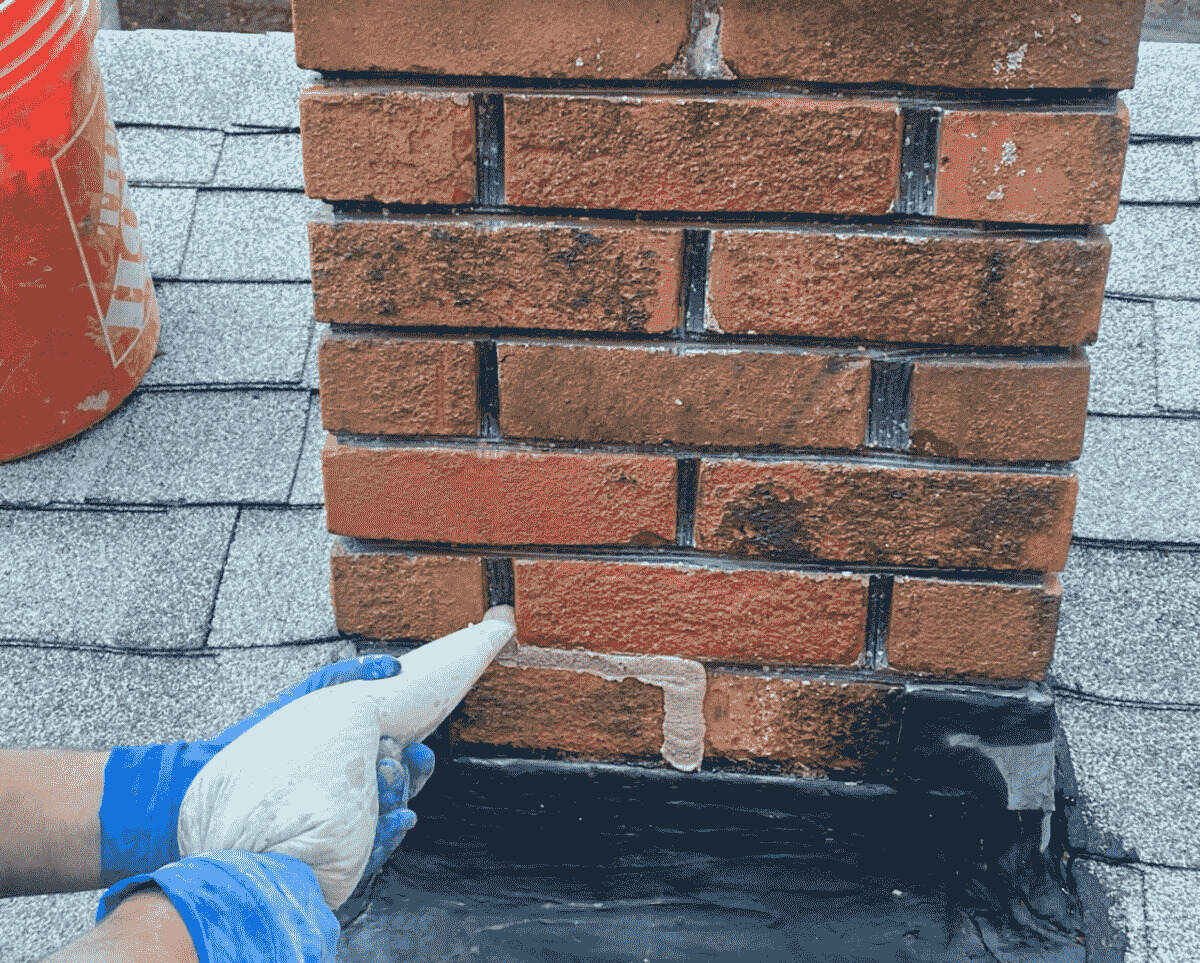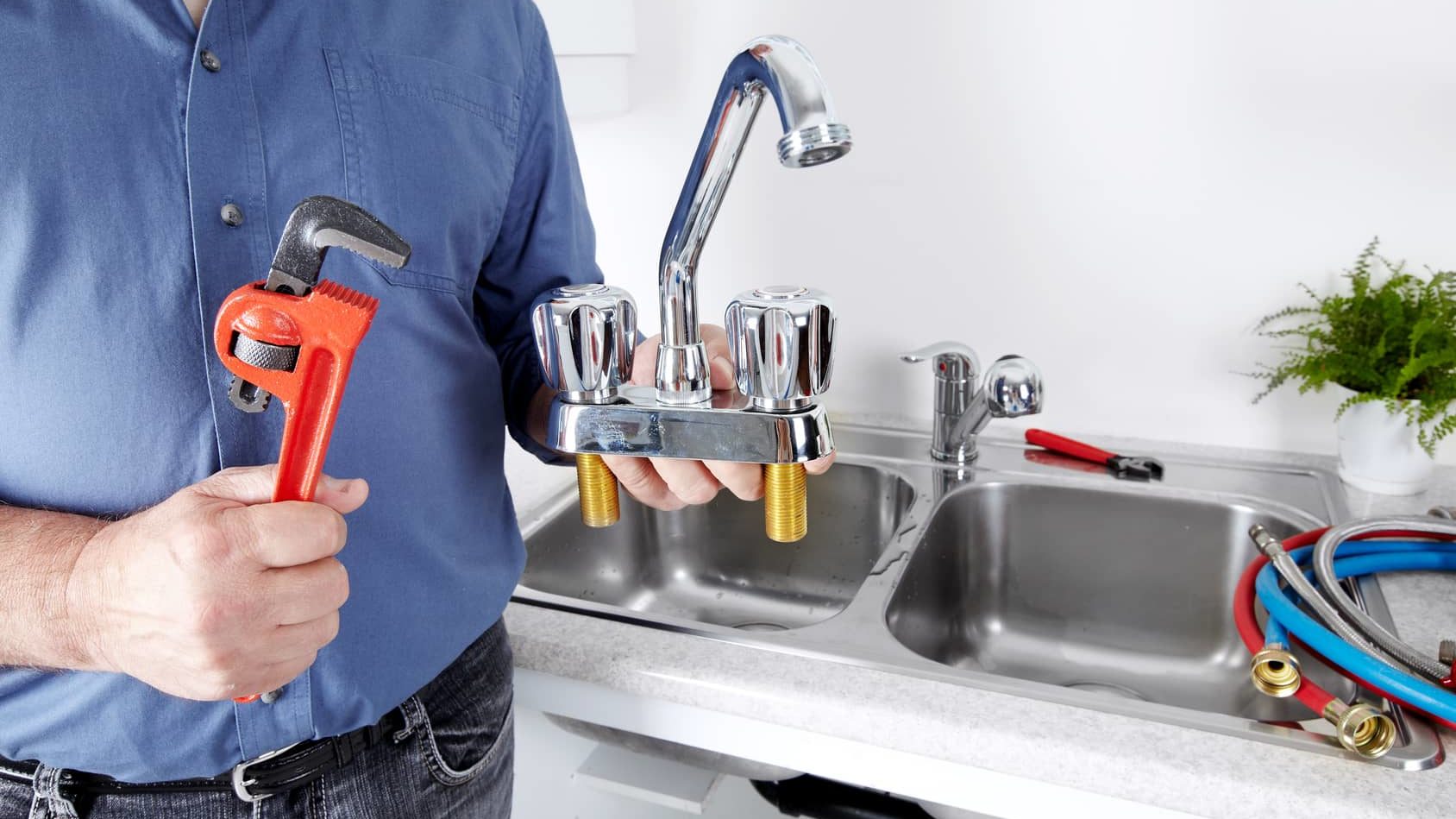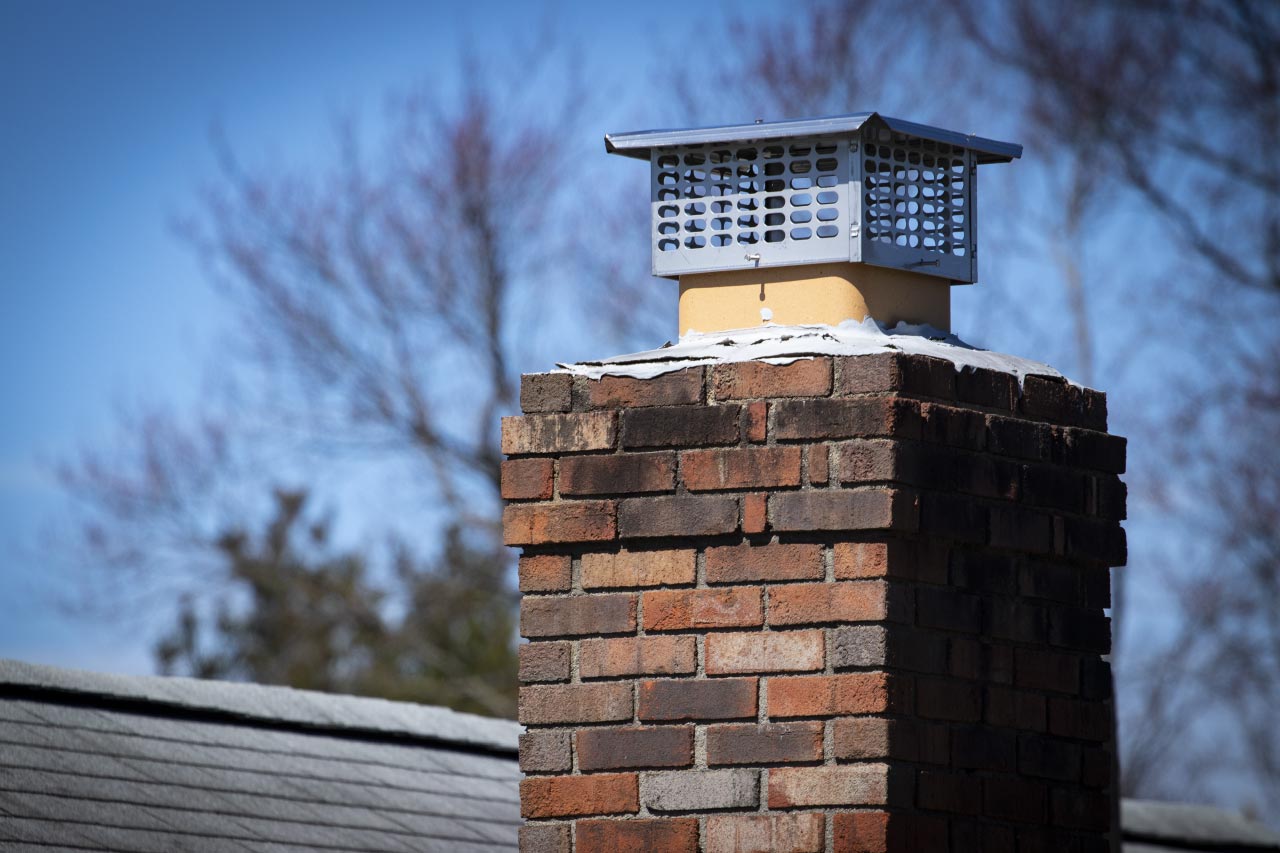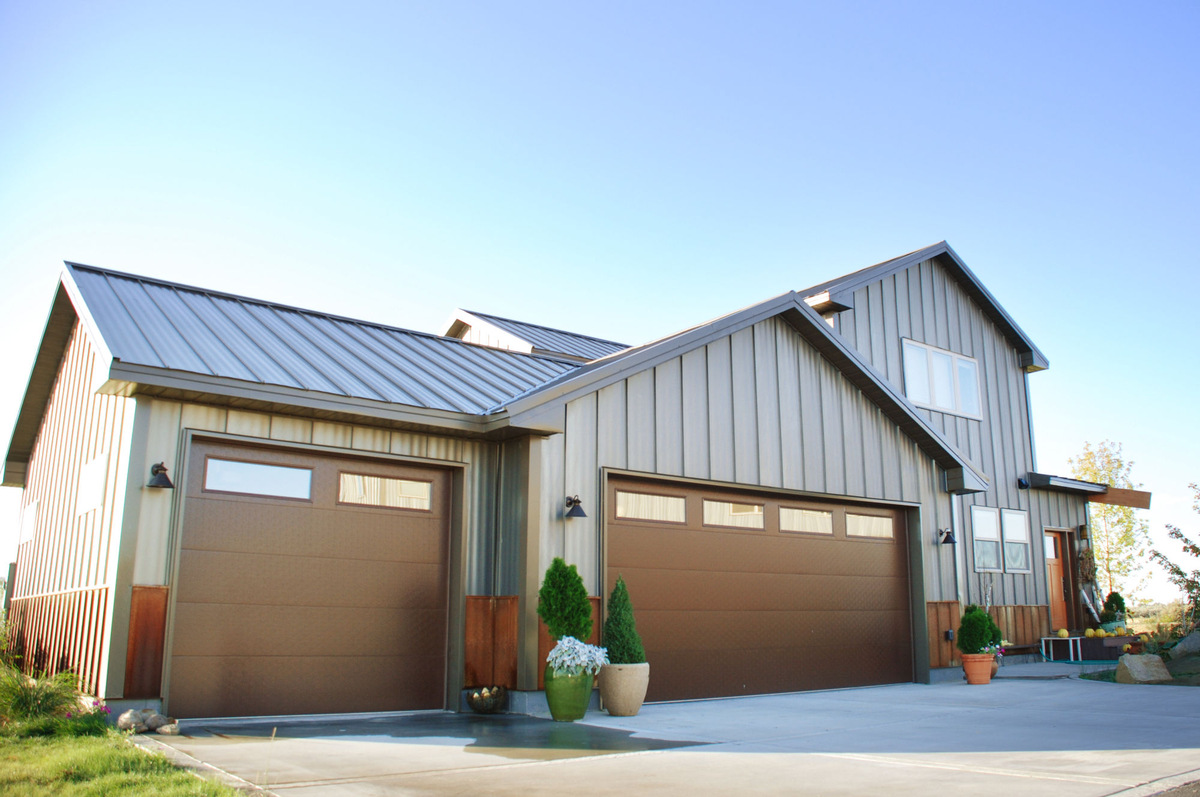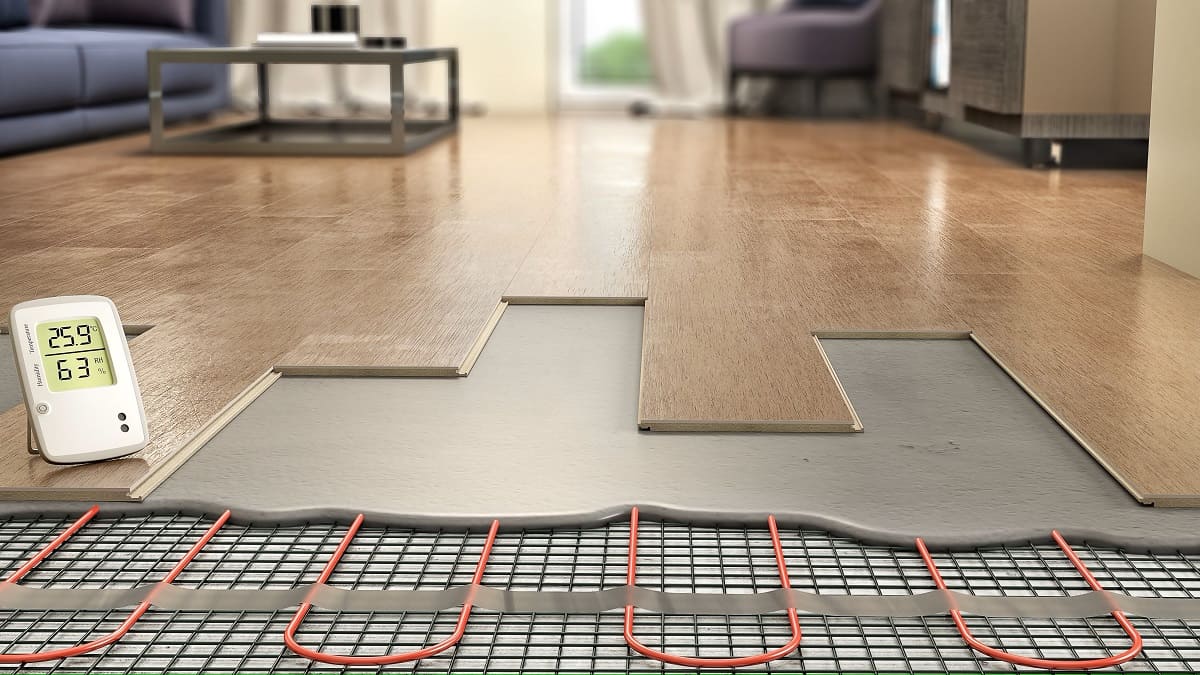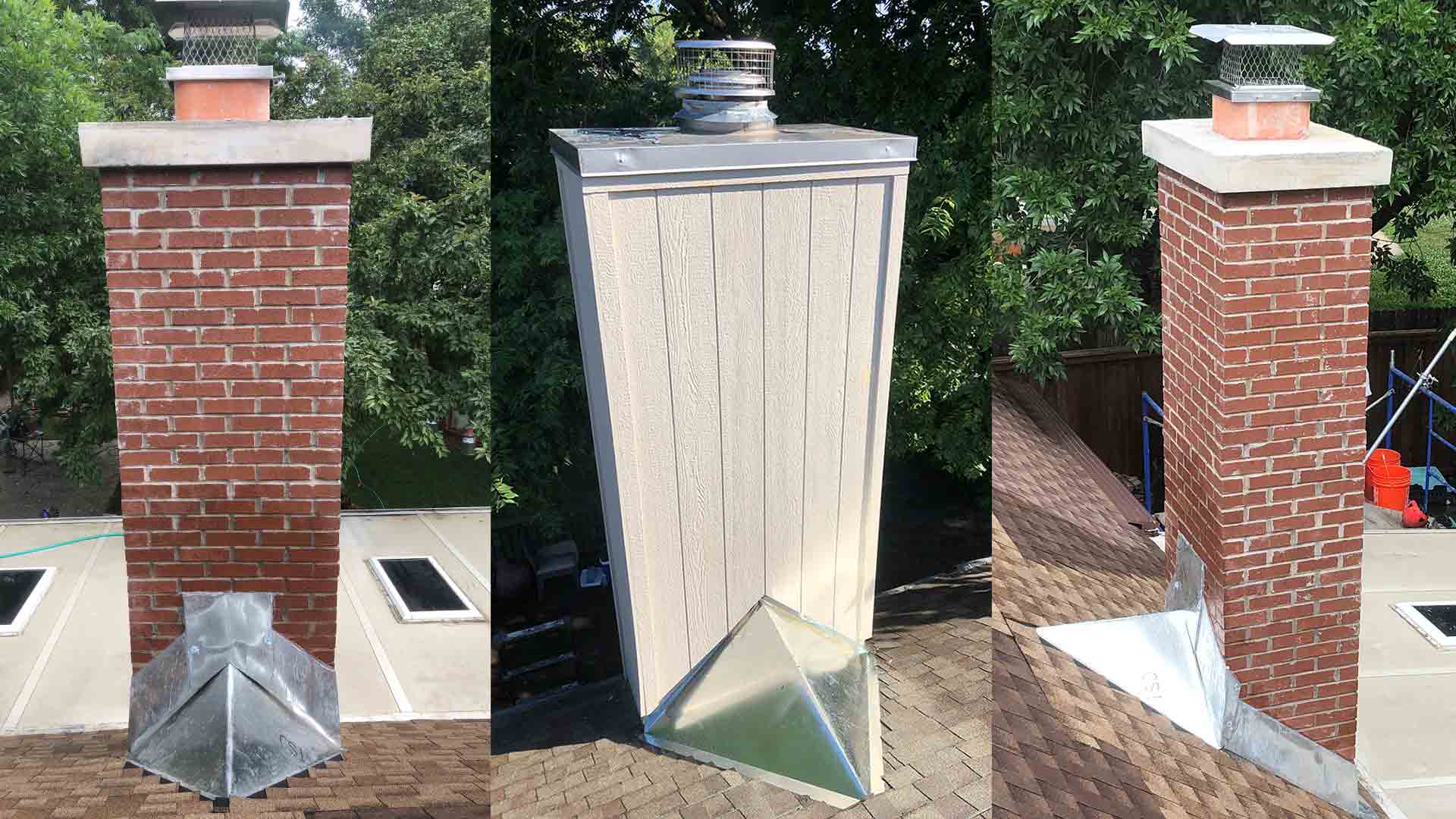Home>Home Maintenance>How Much Does Engine Repair Cost
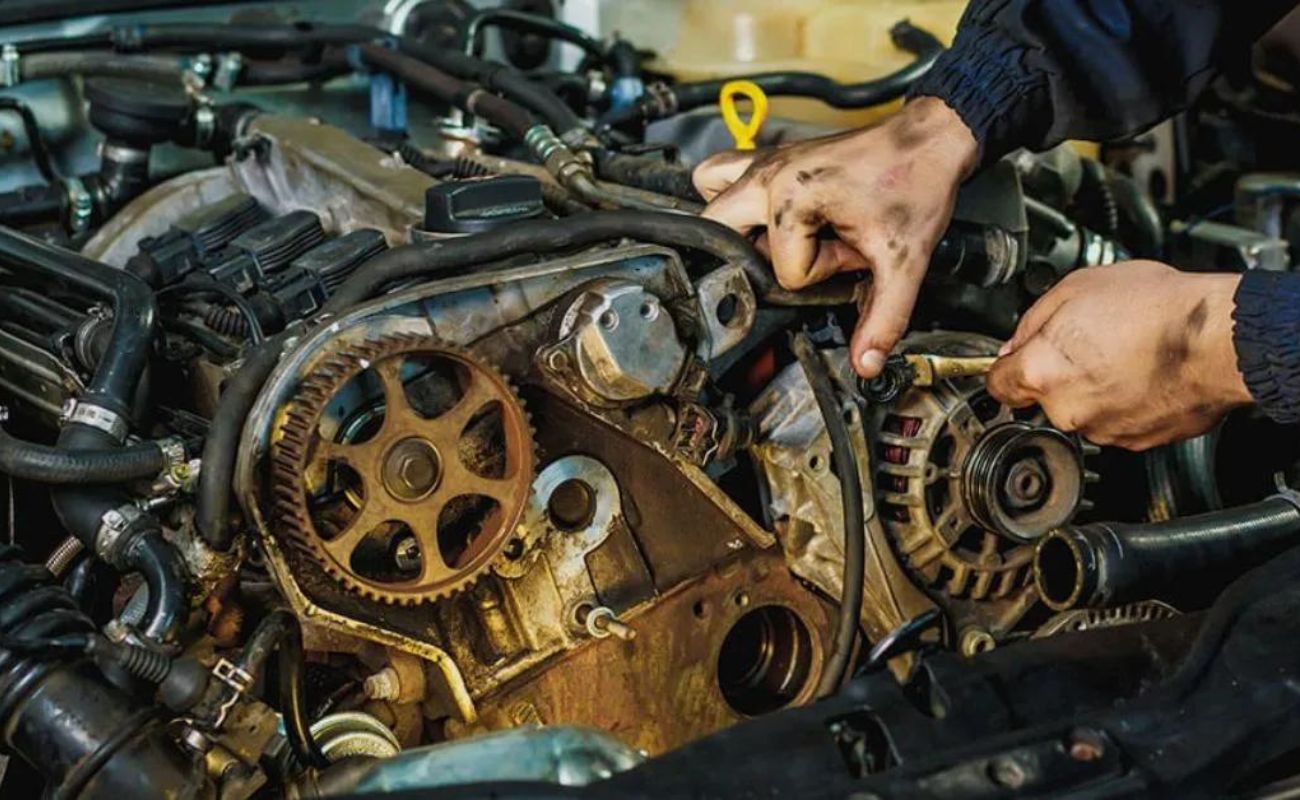

Home Maintenance
How Much Does Engine Repair Cost
Modified: March 6, 2024
Looking to repair your engine at home? Find out how much engine repair costs and get expert tips on home maintenance.
(Many of the links in this article redirect to a specific reviewed product. Your purchase of these products through affiliate links helps to generate commission for Storables.com, at no extra cost. Learn more)
Introduction
Maintaining a home is a never-ending task, and when it comes to home maintenance, one area that often requires attention is the engine. Whether it’s a lawnmower, a generator, or even a car engine, repairs are inevitable. However, before you delve into the world of engine repair, it’s essential to understand the factors that can affect the cost.
In this article, we will explore various factors that can impact engine repair costs, common repair issues, diagnostic costs, labor costs, the cost of engine parts, and additional expenses that may arise during the repair process. We’ll also discuss the pros and cons of hiring a professional versus attempting a DIY repair and provide some valuable tips to save money on engine repair.
Understanding the factors that influence the cost of engine repair is crucial, as it can help you anticipate expenses and plan your budget accordingly. So, let’s dive into the details and learn more about what goes into determining the price of engine repairs.
Key Takeaways:
- Engine repair costs vary based on factors like engine type, issue severity, and labor rates. Regular maintenance and seeking multiple estimates can help save money on repairs.
- Understanding common repair issues and considering aftermarket or used parts can also reduce expenses. Building a relationship with a trusted mechanic and investing in preventive measures are key to cost-effective engine maintenance.
Factors Affecting Engine Repair Costs
When it comes to engine repair costs, several factors come into play, influencing the overall price you can expect to pay. Understanding these factors will help you better comprehend why certain repairs may be more expensive than others. Here are some key factors that can affect engine repair costs:
1. Type of Engine: The type of engine you have will have a significant impact on the repair costs. For example, a small lawnmower engine will generally be less expensive to repair than a complex car engine.
2. Severity of the Issue: The severity of the engine problem will directly affect the cost of the repair. Minor issues, such as a loose belt or a clogged filter, will generally be less expensive to fix compared to major issues like a blown head gasket or a damaged piston.
3. Age of the Engine: Older engines may require more intensive repairs due to natural wear and tear over time. Additionally, finding replacement parts for older engines can sometimes be more challenging, which can potentially drive up the repair costs.
4. Accessibility of the Engine: The accessibility of the engine plays a role in the cost of repair. Engines that are easy to access and work on will generally result in lower labor costs, while engines that are difficult to reach may require more time and effort, thus increasing the overall repair expenses.
5. Brand and Model: The brand and model of the engine can also impact repair costs. Engines from well-known and reputable brands may have readily available parts, making the repairs more affordable. On the other hand, specialized or imported engines may require sourcing parts from overseas, leading to higher costs.
6. Geographic Location: The cost of engine repairs can also vary depending on your geographic location. Prices for labor and parts can fluctuate from one area to another, so it’s important to consider the local market when estimating repair expenses.
7. Warranty Coverage: If your engine is still under warranty, some or all of the repair costs may be covered, reducing the financial burden on you. However, keep in mind that warranties often have limitations and exclusions, so it’s crucial to read the fine print and understand what qualifies for coverage.
By keeping these factors in mind, you can get a better understanding of why engine repair costs can vary significantly. It’s important to consult with a professional mechanic to assess the specific needs of your engine and receive an accurate estimate for the repair expenses.
Common Engine Repair Issues and their Costs
Engine problems can range from minor issues that can be easily repaired to major malfunctions that require extensive work. Understanding some of the most common engine repair issues and their costs can give you an idea of what to expect when facing certain problems. Here are a few common engine issues and their potential costs:
1. Spark Plug Replacement: Faulty spark plugs can cause engine misfires, reduced fuel efficiency, and rough idling. The cost of replacing spark plugs can range from $50 to $150, depending on the make and model of your engine.
2. Oxygen Sensor Replacement: An oxygen sensor measures the amount of oxygen in the exhaust system to ensure proper fuel mixture. When the sensor fails, it can lead to decreased fuel efficiency and increased emissions. The cost of replacing an oxygen sensor can range from $100 to $300, including parts and labor.
3. Timing Belt Replacement: The timing belt keeps the engine’s valves moving in synchronization with the pistons. If the timing belt snaps or becomes worn, it can lead to extensive engine damage. Timing belt replacement costs can vary widely, ranging from $300 to $1,000 or more, depending on the complexity of the engine and whether water pump replacement is necessary.
4. Blown Head Gasket: A blown head gasket can cause coolant leakage, overheating, and engine damage. Repairing a blown head gasket can be a labor-intensive process, with costs ranging from $1,000 to $2,500 or more, depending on the severity of the damage and the type of engine.
5. Engine Overheating: Engine overheating can result from various issues, such as a malfunctioning thermostat, a faulty radiator, or low coolant levels. The cost of diagnosing and fixing an overheating issue can range from around $100 for a simple thermostat replacement to several hundred dollars for more complex repairs.
6. Oil Leak Repair: Oil leaks can occur due to worn gaskets, loose fittings, or damaged seals. The cost of repairing an oil leak will depend on the location and severity of the leak, but it can range from as low as $100 to as high as $1,000 or more.
7. Cylinder Misfire: A cylinder misfire can cause rough idling, decreased power, and increased fuel consumption. Repairing a misfiring cylinder can involve replacing spark plugs, ignition coils, or fuel injectors. Costs can range from $100 to $500 or more, depending on the extent of the repair.
It’s important to note that these costs are estimates and can vary depending on various factors, including the make and model of your engine, labor rates in your area, and the specific repair shop you choose. Always consult with a qualified mechanic for an accurate assessment of your engine issue and a detailed cost estimate.
Diagnostic Costs
When you experience engine troubles, the first step in the repair process is typically diagnosing the issue. Diagnostic costs cover the time and effort it takes for a mechanic to identify the exact problem with your engine. While diagnostic costs can vary depending on several factors, they are an essential part of the repair process.
The cost of engine diagnostics can range from $50 to $200 or more. However, it’s important to note that some repair shops offer free or discounted diagnostics if you proceed with the recommended repairs at their facility. The exact cost will depend on factors such as the complexity of the issue, the location of the diagnostic port, and the amount of time it takes to pinpoint the problem.
During the diagnostic process, a trained mechanic will use specialized equipment and tools to perform various tests and inspections. This may include scanning the engine’s onboard computer system for error codes, conducting a visual inspection of the engine components, performing compression tests, or using other diagnostic techniques to identify the underlying issue.
While diagnostic costs may seem like an additional expense, they are crucial for accurate troubleshooting. Proper diagnostics help prevent unnecessary repairs by pinpointing the precise problem, which can save you money in the long run. It’s important to choose a trusted mechanic who has experience with engine diagnostics and can provide you with a detailed explanation of the problem and the recommended solution.
To ensure transparency and avoid any surprises, it’s a good practice to inquire about diagnostic costs upfront when scheduling an appointment with a repair shop. Ask if the cost will be waived or discounted if you proceed with the repair, and make sure to get a written estimate for both the diagnostics and the actual repair work.
Remember, diagnostics are an investment in the long-term health and performance of your engine. By accurately identifying the issue, you can address it promptly, prevent further damage, and potentially save on costly repairs down the line. So, don’t hesitate to budget for diagnostic costs when seeking engine repairs and trust the expertise of a qualified mechanic to diagnose your engine the right way.
Labor Costs
When it comes to engine repairs, labor costs play a significant role in determining the overall expense. Labor costs encompass the time and expertise of the mechanic or repair technician tasked with fixing your engine. These costs can vary depending on factors such as the complexity of the repair, the experience of the technician, and the labor rates in your area.
Mechanics typically charge an hourly labor rate, which can range anywhere from $50 to $150 or more. Keep in mind that the actual time required to complete the repair will depend on the specific problem and the make and model of your engine. Minor repairs may only take an hour or two, while more complex repairs can take several hours or even days to complete.
It’s important to note that labor costs may not include additional time spent on diagnostics or obtaining parts. These additional tasks may be billed separately, so it’s essential to clarify what is included in the labor costs when discussing repairs with your mechanic.
The labor costs associated with engine repairs are influenced by several factors:
1. Complexity of the Repair: Labor costs will typically be higher for more complex repairs that require extensive disassembly, specialized tools, or advanced technical knowledge. For example, engine rebuilds or cylinder head replacements may involve substantial labor hours, resulting in higher costs.
2. Accessibility of the Engine: If the engine is located in a difficult-to-access area of the vehicle or machinery, the mechanic may need to spend more time and effort to reach and repair the engine. This can increase labor costs due to the additional time required for disassembly and reassembly.
3. Experience and Expertise of the Technician: Labor rates may vary depending on the experience and expertise of the mechanic or technician working on your engine. Highly skilled and specialized technicians often command higher hourly rates due to their extensive knowledge and track record of successfully completing complex repairs.
4. Time Required for Testing and Verification: After the repair is completed, the technician may need to perform final tests to ensure that the issue has been resolved and that the engine is functioning properly. This final testing time may be included in the labor costs.
When seeking engine repair services, it’s essential to request a detailed estimate that clearly outlines the expected labor costs. This will help you budget and understand how labor expenses contribute to the overall repair bill. Additionally, consider obtaining multiple quotes to compare labor rates and ensure you are receiving fair pricing for the services rendered.
Remember, while labor costs may seem high, investing in a skilled and experienced technician is crucial for a proper and reliable repair. Cutting corners on labor costs could lead to subpar workmanship and potentially more problems in the future. So, prioritize finding a reputable repair shop with qualified technicians who can deliver quality repairs for your engine.
Regular maintenance can help prevent costly engine repairs. If you notice any issues, address them promptly to avoid further damage and higher costs.
Read more: How Much Does Small Engine Repair Cost
Cost of Engine Parts
When it comes to engine repairs, the cost of parts can significantly impact the overall expense. The price of engine parts can vary widely depending on various factors, including the specific component needed, the make and model of your engine, and whether you opt for brand new parts or used/recycled parts.
Here are a few things to consider when it comes to the cost of engine parts:
1. Brand New Parts: Purchasing brand new OEM (Original Equipment Manufacturer) parts from the manufacturer or authorized dealers is usually the most expensive option. These parts are specifically designed for your engine and often come with a warranty, ensuring quality and compatibility. However, their higher price tag can contribute to the overall repair cost.
2. Aftermarket Parts: Aftermarket parts are manufactured by companies other than the original manufacturer and are often less expensive compared to OEM parts. While they may not carry the same brand recognition, aftermarket parts can still offer reliable performance and save you money on engine repairs.
3. Used/Recycled Parts: In some cases, particularly for older engines or rare models, finding new parts may be challenging or expensive. In these situations, used or recycled parts can be a more affordable alternative. Salvage yards or online marketplaces may have the necessary components at a fraction of the cost of new parts. However, be cautious when purchasing used parts and ensure their quality and compatibility with your engine.
4. Rebuilt or Remanufactured Parts: Rebuilt or remanufactured parts are often a cost-effective option for engine repairs. These parts have been disassembled, cleaned, and rebuilt with new components to restore their functionality. While they may not be as good as brand new parts, they can offer a reliable and budget-friendly alternative.
It’s important to keep in mind that the cost of engine parts can vary depending on the specific component and the make and model of your engine. Some parts, such as filters and belts, may be relatively inexpensive, while others, such as cylinder heads or engine blocks, can be quite pricey. Additionally, certain components may require additional accessories or gaskets, which can add to the overall expense.
When consulting with a mechanic or researching parts, be sure to inquire about the cost of the specific components needed for your engine repair. This will help you budget accordingly and make an informed decision about which parts to choose based on your needs, budget, and desired level of quality.
Lastly, it’s worth mentioning that while it may be tempting to opt for the cheapest parts available, it’s crucial to balance cost and quality. Investing in high-quality parts can ensure the longevity and performance of your engine, saving you money on potential future repairs. Consult with a trusted mechanic or reputable parts supplier to make the best choice for your engine repair needs.
Additional Costs
When it comes to engine repairs, there are often additional costs that can arise during the process. These expenses are important to consider and budget for to avoid any surprises and ensure a smooth repair experience. Here are some common additional costs to keep in mind:
1. Fluids and Lubricants: Engine repairs may require the replacement of fluids and lubricants such as engine oil, coolant, transmission fluid, or brake fluid. These costs can vary depending on the type and quantity of fluids needed.
2. Gaskets and Seals: Depending on the repair being performed, gaskets and seals may need to be replaced to ensure proper sealing and prevent leaks. These small components can add to the overall cost of the repair, although they are crucial for the long-term functionality of your engine.
3. Fasteners and Hardware: Some engine repairs may require the replacement of fasteners, bolts, or other hardware to ensure proper assembly and structural integrity. These small but essential components may come at an additional cost.
4. Machine Shop Services: In some cases, when repairing or rebuilding an engine, machine shop services may be necessary. This can include services such as cylinder head resurfacing, engine block machining, or crankshaft grinding. These services are typically performed by specialized shops and may incur additional costs.
5. Disposal Fees: When certain engine components, such as batteries or contaminated fluids, need to be disposed of properly, there may be fees associated with their disposal. This is especially important to consider when it comes to environmentally sensitive materials or hazardous substances.
6. Taxes and Shop Fees: It’s common for repair shops to add taxes and various shop fees to the final invoice. These charges typically cover administrative costs or miscellaneous expenses incurred during the repair process.
It’s essential to discuss these additional costs with your chosen repair shop before authorizing any repairs. A reputable shop will provide you with a detailed estimate that includes all potential additional expenses, giving you a clear understanding of the total cost involved.
To avoid any unexpected charges, ask for an explanation of all the components and services included in the estimate. This will allow you to make an informed decision about the repair and budget accordingly.
Remember, while additional costs can add up, they are necessary for a complete and thorough repair that ensures the long-term functionality and reliability of your engine. By accounting for these costs ahead of time, you can avoid any surprises and have a hassle-free repair experience.
Hiring a Professional vs. DIY Repair
When it comes to engine repairs, you may be faced with the decision of whether to hire a professional mechanic or attempt a DIY (Do-It-Yourself) repair. Both options have their advantages and considerations, and it’s important to weigh them carefully before making a decision.
1. Professional Mechanic:
Hiring a professional mechanic for engine repairs offers several benefits:
– Expertise and Experience: Professional mechanics have extensive knowledge and experience working with different types of engines. They are trained to diagnose issues accurately and efficiently, saving you time and frustration.
– Specialized Tools and Equipment: Mechanics have access to specialized tools and equipment that are necessary for certain repairs. This ensures that the job is done correctly and minimizes the risk of causing further damage to the engine.
– Warranty and Guarantees: Many reputable repair shops offer warranties or guarantees on their work. This provides peace of mind knowing that if an issue arises after the repair, it can be addressed without incurring additional costs.
– Time Saving: Hiring a professional allows you to focus on other tasks and responsibilities while the repair is being completed. This is particularly beneficial if you lack the necessary knowledge, experience, or time to perform the repair yourself.
However, there are considerations when working with a professional mechanic:
– Cost: Hiring a professional mechanic can be more expensive than attempting a DIY repair, especially when factoring in labor costs and the overhead of running a repair shop.
– Wait Time: Depending on the availability of the mechanic and the workload of the repair shop, there may be a wait time before your engine can be repaired. This can be a challenge if you’re relying on the engine for daily use or time-sensitive projects.
2. DIY Repair:
Opting for a DIY repair can be a viable option for those with mechanical skills, knowledge, and experience. Here are some benefits of DIY engine repairs:
– Cost Savings: DIY repairs have the potential to save money on labor costs. By investing your own time and effort, you can significantly reduce the overall expense.
– Skill Development: Engaging in DIY repairs allows you to expand your mechanical skills and knowledge. It can be a rewarding experience, and with practice, you can gain confidence in handling engine repairs.
– Immediate Availability: When you choose a DIY repair, you have control over the timeline. You don’t have to wait for an appointment or deal with potential delays. You can start working on the repair whenever it is convenient for you.
However, there are considerations when opting for a DIY repair:
– Skill Level: Engine repairs can be complex and require a certain level of expertise. If you lack the necessary skills or knowledge, attempting a DIY repair can lead to mistakes that may worsen the problem or result in additional costly repairs.
– Tools and Equipment: DIY repairs may require specific tools and equipment that you may not have readily available. Purchasing or renting these tools can add to the cost of the repair.
– Time and Resources: DIY repairs can be time-consuming, especially if you’re not familiar with the process. Additionally, sourcing the correct parts and troubleshooting any challenges can be more time-consuming than expected.
Ultimately, the decision between hiring a professional mechanic or attempting a DIY repair comes down to your skill level, available resources, and comfort level with handling engine repairs. For complex issues or if you’re unsure about your abilities, it’s often best to consult with a professional to ensure the job is done right.
Tips to Save Money on Engine Repair
Engine repairs can sometimes be costly, but there are ways to save money without compromising the quality of the repair. Here are some practical tips to help you reduce expenses when it comes to engine repairs:
1. Regular Maintenance: The best way to avoid costly engine repairs is by practicing regular maintenance. This includes regularly changing engine oil, replacing filters, and checking fluid levels. By properly maintaining your engine, you can prevent small issues from escalating into more significant and expensive problems.
2. DIY Routine Maintenance: Some routine maintenance tasks can be easily performed by DIY enthusiasts. Tasks like oil changes, air filter replacements, and spark plug replacements can save you money on labor costs. Just be sure to follow proper procedures and use the recommended parts and materials.
3. Shop Around for Estimates: Don’t settle for the first repair shop you come across. Take the time to get multiple estimates from different mechanics or repair shops. By comparing prices, you can find more affordable options without sacrificing quality.
4. Consider Aftermarket or Used Parts: Instead of automatically opting for brand new OEM parts, inquire about the availability of aftermarket or used parts. Aftermarket parts can be less expensive than OEM parts while still offering reliable performance. Used parts, if sourced from reputable sources, can also be a cost-effective alternative for certain repairs.
5. Preventive Maintenance: In addition to regular maintenance, consider investing in preventive measures. For example, using fuel additives or performing regular engine flushes can help keep your engine running smoothly and minimize the risk of expensive repairs.
6. Read the Owner’s Manual: Familiarize yourself with the maintenance schedule and recommendations outlined in your engine’s owner’s manual. Following the manufacturer’s guidelines can help you avoid unnecessary repairs and ensure that you’re prioritizing the right maintenance tasks.
7. Avoid Ignoring Warning Signs: Pay attention to any warning signs of engine trouble, such as strange noises, unusual smells, or dashboard warning lights. Ignoring these signs can lead to more severe issues and costlier repairs down the line. Addressing problems early on can often save you money in the long run.
8. Build a Relationship with a Reputable Mechanic: Establishing a relationship with a trusted and reliable mechanic can be beneficial in the long term. A mechanic who knows your engine and its history can provide valuable advice, prioritize necessary repairs, and potentially offer discounts or special pricing for loyal customers.
9. Educate Yourself: Take the time to learn about basic engine maintenance and common repairs. Having a basic understanding of how your engine works and how to identify potential issues can help you make informed decisions and avoid unnecessary expenses.
10. Consider Extended Warranties: If you’re purchasing a new engine or a vehicle with a warranty, look into extended warranties that cover engine repairs. These warranties can provide financial protection and peace of mind in case of unexpected engine issues.
By following these tips, you can take a proactive approach to engine maintenance and repair, ultimately saving money in the process. Remember, prevention is key, and a well-maintained engine is less likely to require expensive repairs.
Read more: How Much Does It Cost For A Chimney Sweep
Conclusion
Keeping your engine in good condition is essential for the overall maintenance of your home and vehicles. However, engine repairs can sometimes be costly. By understanding the various factors that affect engine repair costs and implementing some money-saving tips, you can minimize expenses without compromising on quality.
Factors such as the type of engine, severity of the issue, age of the engine, accessibility, brand and model, geographic location, and warranty coverage all play a role in determining the cost of engine repairs. These factors help you better anticipate expenses and budget accordingly.
Common engine repair issues such as spark plug replacements, oxygen sensor replacements, timing belt replacements, blown head gaskets, engine overheating, oil leaks, and cylinder misfires can vary in cost depending on their complexity and the specific make and model of your engine.
Alongside repair costs, it’s important to consider additional expenses that may arise during the repair process. This can include the cost of fluids and lubricants, gaskets and seals, fasteners and hardware, machine shop services, disposal fees, taxes, and shop fees. Accounting for these additional costs can help you avoid surprises and plan your budget effectively.
When it comes to deciding between hiring a professional mechanic or attempting a DIY repair, consider your skill level, available resources, and the complexity of the repair. While hiring a professional offers the expertise, specialized tools, and guarantees, a DIY repair can save money on labor costs if you have the necessary skills and knowledge.
To save money on engine repairs, practice regular maintenance, consider aftermarket or used parts, shop around for estimates, invest in preventive measures, and build a relationship with a reputable mechanic. By staying proactive, addressing issues early on, and educating yourself about engine maintenance, you can prolong the life of your engine and minimize costly repairs.
In conclusion, engine repairs are a necessary part of home maintenance. By understanding the factors affecting costs, being prepared for additional expenses, and making informed decisions about hiring professionals or attempting DIY repairs, you can save money without compromising the functionality and reliability of your engine. Prioritize regular maintenance, follow the manufacturer’s recommendations, and address issues promptly to keep your engine running smoothly and efficiently for years to come.
Frequently Asked Questions about How Much Does Engine Repair Cost
Was this page helpful?
At Storables.com, we guarantee accurate and reliable information. Our content, validated by Expert Board Contributors, is crafted following stringent Editorial Policies. We're committed to providing you with well-researched, expert-backed insights for all your informational needs.
